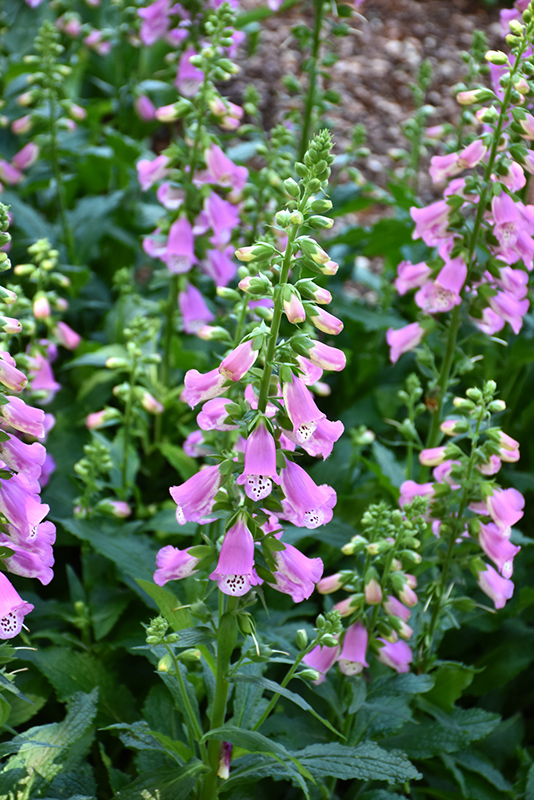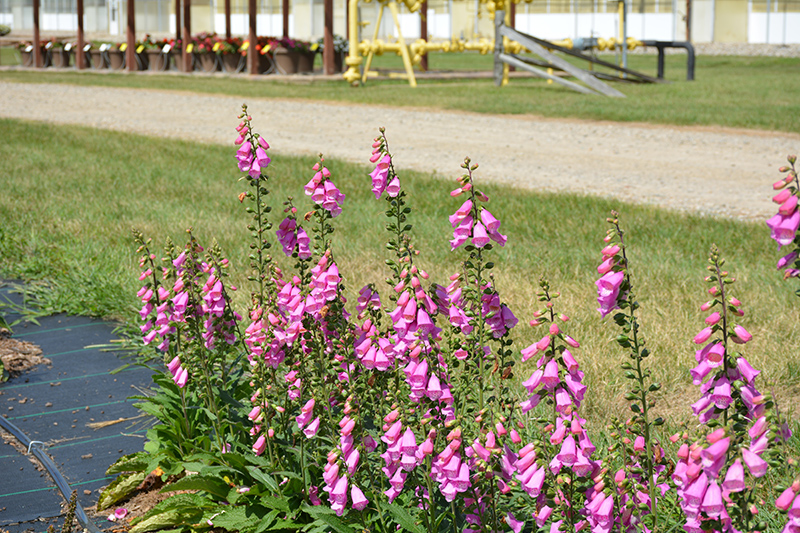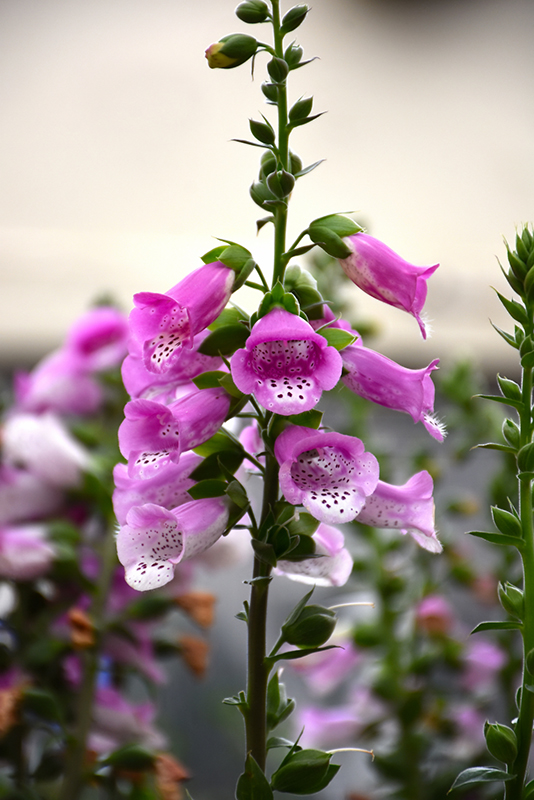Pink Panther® Foxglove - New For 2025!
Digitalis 'Pink Panther'
Plant Height: 22 inches
Flower Height: 30 inches
Spacing: 18 inches
Sunlight:
![]()
![]()
Hardiness Zone: 6a
Description:
This hybrid selection is sterile and does not re-seed; bright pink flowers with burgundy dotted white throats rise on sturdy spikes; repeat blooming, for a long season of color; performs in a wide range of growing conditions
Ornamental Features
Pink Panther® Foxglove features bold spikes of hot pink tubular flowers with white throats and burgundy spots rising above the foliage from mid summer to early fall. The flowers are excellent for cutting. Its oval leaves remain dark green in color throughout the season.
Landscape Attributes
Pink Panther® Foxglove is an herbaceous perennial with a rigidly upright and towering form. Its medium texture blends into the garden, but can always be balanced by a couple of finer or coarser plants for an effective composition.
This plant will require occasional maintenance and upkeep, and is best cleaned up in early spring before it resumes active growth for the season. It is a good choice for attracting hummingbirds to your yard, but is not particularly attractive to deer who tend to leave it alone in favor of tastier treats. It has no significant negative characteristics.
Pink Panther® Foxglove is recommended for the following landscape applications;
- Mass Planting
- Rock/Alpine Gardens
- General Garden Use
- Container Planting
Planting & Growing
Pink Panther® Foxglove will grow to be about 22 inches tall at maturity extending to 30 inches tall with the flowers, with a spread of 22 inches. When grown in masses or used as a bedding plant, individual plants should be spaced approximately 18 inches apart. It tends to be leggy, with a typical clearance of 1 foot from the ground, and should be underplanted with lower-growing perennials. It grows at a fast rate, and tends to be biennial, meaning that it puts on vegetative growth the first year, flowers the second, and then dies. As an herbaceous perennial, this plant will usually die back to the crown each winter, and will regrow from the base each spring. Be careful not to disturb the crown in late winter when it may not be readily seen!
This plant does best in full sun to partial shade. It does best in average to evenly moist conditions, but will not tolerate standing water. It is not particular as to soil type or pH. It is highly tolerant of urban pollution and will even thrive in inner city environments. This particular variety is an interspecific hybrid, and parts of it are known to be toxic to humans and animals, so care should be exercised in planting it around children and pets.
Pink Panther® Foxglove is a fine choice for the garden, but it is also a good selection for planting in outdoor pots and containers. With its upright habit of growth, it is best suited for use as a 'thriller' in the 'spiller-thriller-filler' container combination; plant it near the center of the pot, surrounded by smaller plants and those that spill over the edges. It is even sizeable enough that it can be grown alone in a suitable container. Note that when growing plants in outdoor containers and baskets, they may require more frequent waterings than they would in the yard or garden.



